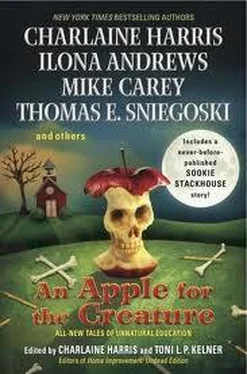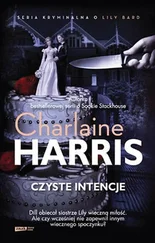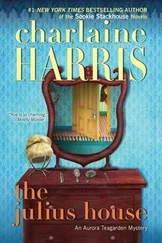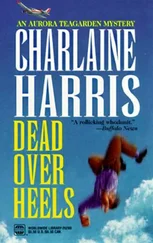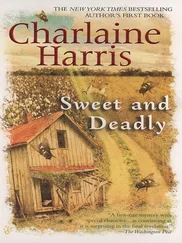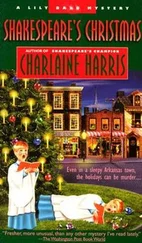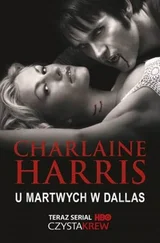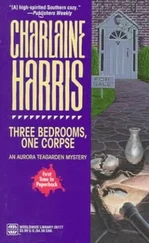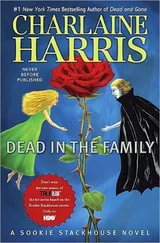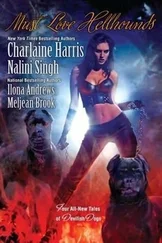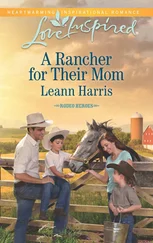Wives were odd sometimes. Over the years, I’d seen a few who couldn’t pull themselves from the graves of lost men, sitting up all through the day and night with Bibles, crosses, or nothing to hold but their skirts and faces, weeping and praying like God would give them a resurrection, like maybe their men were as good as Jesus and would be risen. Seemed to me that was arrogance bordering on sin, but not one that was any worse than murder.
Martha was home. I stood at the edge of the forest, staring at her lit windows, watching her make circles all around her kitchen. I could have gone closer, but the old coonhound was tied to the porch, and even though he knew me, there was no sense in sparking the possibility of him making an unattractive sound.
The forest sang at night, trills and clicks, and whispers of the wind in the naked rubbing branches. Coyotes yipped and somewhere close a fox screamed like a woman, making my skin crawl cold even though it was nothing to fear.
The shovel was heavy on my shoulder. So was the ax.
I found the grave before moonrise and started digging. Took hours. I didn’t focus as I should. Kept thinking about Edward Bromes, and my last view of his body before his brothers slid him into the pine box: pale, stiff, eyes sewn shut.
I thought about other men, too.
I had to jump down into the hole, standing waist-high in loose dirt as I used the ax to pry apart the soft, cheap wood. Martha had insisted on something finer than a muslin shroud, but each groan of those splitting planks made my heart beat harder until I was breathless, expecting to hear shouts, dogs barking. The night was all as it should be, though: empty, quiet, crisp with frost.
Edward smelled a little, but no worse than other corpses. I looked down at him with nothing but a small tallow candle to enhance my sight, but that was more than enough. I had sewn the stitches myself to close his eyes, prepared the body for burial under the watchful, too watchful, gaze of his wife, and now we were met again and he was still dead, but with a purpose.
I cut off his right hand, wrapped it in oilskin, and reburied him.
By sunrise I was home, and had just enough time to wash up before I went for another day of lessons with old Ruth.
—
Think what you will, but I had no real family. Mother dead from the influenza, father run off with a woman who clerked for the big boss at the quarry. Gone ten years, and maybe he’d thought a six-year-old daughter would be cared for by relations, but a good hunting dog would have been more welcome, and was; old Tick, a bloodhound come down from Kentucky as a puppy, brought to heel by an uncle after my father run off, and I still recall Martha and Edward and another aunt being angry about the inconvenient loss.
I was another mouth to feed. By the time Ruth found me, I had no shoes, no coat, and my hair had to be shorn to the scalp because of lice and fleas. I still remember the sores on my legs and arms: insect bites scratched to infection; and the vinegar baths and salt scrubs, and willow-bark tea forced down my throat for weeks, weeks after Ruth took me in and clothed me like a doll in soft dresses.
“Clora, my sweet,” she’d say, and I loved her for it. Decided, in that pure childlike naivete kin to wishing on a star, that I would do anything for her, I’d care for her, I’d be hers in body and soul.
It was the soul part I hadn’t realized would be a problem.
—
The poppet for the mother of the Buck Creek girl took three days to make.
I cut cloth from one of the old burlap bags folded by the fireplace, and took up a smaller, sharper finger-blade to shear out the shape of a man. Twice I did this, using the first as a pattern that I traced with a stick of coal. Ruth had taught me to do the same with twisted roots and vines, formed to take a human shape; or dried corn cobs or clay; but cloth had advantages that Ruth had spelled into me, such as it could be sewn into a vessel filled with all the sundry items a good hoodoo needed: blood and bones, and cuttings of hair; dried fluids from a man’s loving, trapped on cloth; mushrooms, feathers, shell, and stone. Little bits of power in the right hands with the right intent and desire, making a sympathetic echo that might correspond to a living human body.
“Need to fix that red stitch,” Ruth told me, as I sewed. “Fix it or start over.”
I pulled the bone needle back through the hole as Ruth turned away to her own sewing: a doll as long as my forearm, with a real face embroidered in her finest threads: black hair, blue thread dyed from woad for his eyes, a strong nose identified by a crooked line.
“Haven’t told me who that’s for,” I said, quiet.
“Hush.” Ruth put a fat persimmon in her mouth, and began sucking on it. “You’ll make another mistake. All my teaching will be for naught if you keep up this way.”
I gave her a small smile, but with my eyes averted. I only made mistakes when I had a mind to do so. Ruth might say she wanted me strong, and I’d tried to please her in that way before I realized better—before I seen a look she couldn’t hide on the day I sewed a hoodoo that made a man burst his brain with apoplexy before I finished the last stitch. Us at the spring market in the valley, sitting under a tree, and all it was supposed to be was a lesson in seeing the hoodoo make a man itch. Not die.
So, I made mistakes after that. Small ones. Enough to make me look weak.
Not from guilt.
I wanted to survive.
—
I walked the poppet down to Buck Creek on the fourth day. It was cold and bright, and the closer I got to the bottom of the valley, the more houses I saw deep in the woods—and in the distance, the winding track of the dirt road that somewhere bled north into a larger road, and larger, beyond which I’d never seen.
I didn’t need Ruth’s directions to find the right home, built into the side of a rocky hill cleared of trees. I could hear the creek, but the chickens were louder, scratching in a large pen guarded by a hound gone gray at the muzzle. The mother was out in the yard splitting firewood, cheeks red from exertion and the chill, her bare hands the same color. Her smile was tight-lipped when she saw me, but I didn’t take it hard. Asking for a bad act was the same as committing it, and didn’t matter how it was done: God would be all for the remembering, when the final day was come.
“Didn’t expect you so soon,” she said.
“Soon as done,” I replied, looking around. “Is your daughter here?”
Her gaze hardened. “Off to the quarry. She brings that man his lunch. Won’t be reasoned with, no matter how hard I come at her.”
“Shame,” I said, wondering at how much I sounded like Ruth. “Terrible she won’t believe you. About his way with women, I mean.”
“I only want what’s best for her. Plenty of fine men, without Betty making eyes at a no-good. If he gets her with child . . .” The mother made a disgusted sound, and leaned the ax against the cutting block. “God’s work that Margaret down at the Bend heard of his wandering eye before I let it go too far.”
God’s work, maybe. My work, certainly. Rumors could cast a spell just as powerful as needle and thread.
I began to pull the poppet from my satchel, but the mother stiffened and took a step back.
“Not out here,” she said, looking around as if a crowd from church had gathered in the trees. “Not here.”
We went inside. Her cabin was dark, but it smelled like warm bread and coffee. She offered me none of that, except a handful of crumpled bills that looked like the right amount, though it was hard to tell. I didn’t count them. Ruth knew how to handle a cheater, well and good, which this woman surely knew.
Читать дальше
